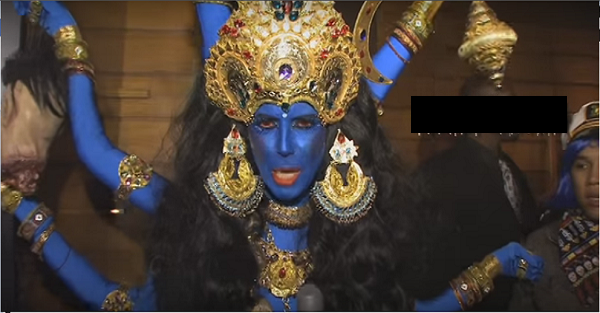Myth: Deity worship standard in ISKCON does not come up to the level of traditional temples in India.
Fact: ISKCON temples are highly acclaimed in India and the rest of the world for exactingly high standard of deity worship. There are daily six aratis, regular bhoga offering beginning from early morning at 4:30AM, qualified priests and Brahmans expertly trained in deity dressing and worship
Myth: ISKCON has very few people from Brahman families.
Fact: In Bhagavad Gita (18.42-44), Sri Krishna clearly states that the Varna (caste) of a person is decided by his activities, not by birth. At ISKCON all devotees follow rigorous regulative principles and are carefully guided and observed by their spiritual masters before they become eligible to receive their first (Harinam) or second (Brahamanical) initiation. All initiated devotees in ISKCON take a vow to adhere to the four regulative principles (no meat eating, no intoxication, no gambling and no illicit sex) and chant at least sixteen rounds of Japa every day.
Myth: ISKCON propounds a culture of conversion
Fact: ISKCON has the basic belief that God consciousness is universal and all major religions are bona fide. With this understanding, ISKCON does not have a mission to proselytize members of other faiths. There are fully practicing Christians and Moslems who are active members of ISKCON.Similarly there are many that have whole heartedly embraced the Vedic teachings explained in the ISKCON temples. Conversion is a an individual experience, a very personal spiritual journey that transcends religious institutions and sectarian affiliations. Conversion models that depend on exclusionist demands of affiliation may often do so without considering the Lord’s supremacy, independent in truth.
Myth: ISKCON like other temples and churches is always asking for money.
Fact: It is customary for religious organizations, engaged in spiritual service, to depend on the congregation for support. While our temples do need money to support, they are ultimately only dependant on the mercy of Sri Krishna for this. People contribute voluntarily, only when they are eager to utilize their wealth in the service of Sri Krishna, and ISKCON takes utmost care that this is done optimally. However no one is excluded on the basis of their wealth or contributions. The greatest spiritual realizations that one can have is that he is not the proprietor of anything – every thing belongs to Krishna and is best used in his service.
Myth: ISKCON has diluted religion by making it high-tech.
Fact: Temples in ISKCON are known to rely on latest technology to attract visitors. Sannyasis fly around the world and keep in touch using Email from their laptops. But all this is being used in the service of Sri Krishna. In itself technology is neither good or bad, it is the intent of its use that makes the difference. The concept of ‘yukta vairagya’ using everything in the service of Krishna is fully understood and carefully followed in ISKCON.
Myth: ISKCON does not have any social obligations.
Fact: ISKCON is the largest Vegetarian Food Relief organization in the world. It distributes a plate of prasadam every five seconds, some times in the midst of war and famine situations. At different places, depending on the resources and interest, ISKCON has established hospitals, schools, farm communities and restaurants. However, they do not distribute just food, they distribute prasadam (food that has been sanctified by offering to Krishna), which not only alleviates physical hunger but also provides spiritual nourishment. The focus is always on the spiritual growth of a person, not just the temporary material body.
Myth: ISKCON requires its members to shave up and become bald !
Fact: The only basis of joining ISKCON is simple: a sincere desire to develop God consciousness. There are attendant processes while making spiritual advancements, like austerity, simplicity and frugalness. Becoming bald is simply one of the prescribed ways to lead a simple, austere life.
We hope that this has cleared many common misconceptions about ISKCON held by people in different countries and denominations. As always, we welcome from our readers, discussions on any of these points.
Source – http://iskconchennai.tripod.com/myths.html
